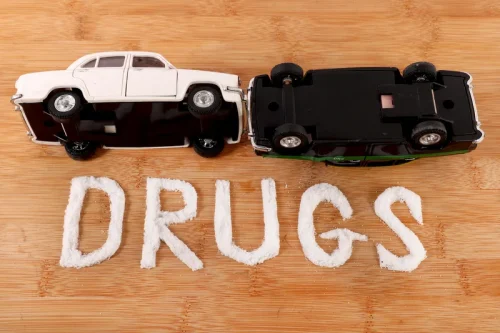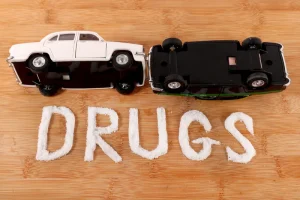
These symptoms can include anxiety, restlessness, and severe cravings, which make it difficult for an individual to abstain from the substance. Additionally, the body and mind’s dependency on the substance often creates a state of denial, making it harder for an individual to acknowledge their addiction. A person desires to return to the intoxication stage of addiction to feel pleasure again and find relief from withdrawal symptoms. If you or a loved one struggle with addiction, American Addiction Centers (AAC) can help. AAC operates treatment centers throughout the country, offering the complete continuum of care and providing evidence-based therapies and individualized treatment plans. Reach out to connect with one of the knowledgeable and compassionate admissions navigators, who can answer your questions, explain your options, and help you begin a path to lasting recovery.
Understanding The Cycle of Addiction and Its Components
- Stages can overlap, and professionals may call them by different names.
- Over the years, a person who occasionally drinks or uses drugs casually may develop a habit that can become an addiction.
- However, in the absence of outside help, such as alcohol or drug detox followed by addiction treatment help, the substance abuse or addictive behavior is likely to return.
- Learning to navigate life without the crutch of substances is a critical part of recovery.
- As the body and mind adapt to the presence of the substance, tolerance builds.
Cravings and obsessive thinking about the substance or behaviour become common. This preoccupation can lead to impulsive and compulsive behaviours aimed at satisfying the cravings, often overriding rational decision-making and consideration of the negative consequences. This stage can create a cycle of desire, pursuit, consumption, and negative aftermath, perpetuating the addictive behaviour. By understanding the cycle of addiction, you’re equipped with the tools to identify the signs and patterns of substance misuse. This isn’t just about awareness; it’s about empowering yourself in the face of a seemingly insurmountable challenge. Breaking the cycle is possible, and there’s a whole community ready to support you in this journey.
Cognitive control of behavior
This physiological dependence is a key factor in perpetuating the addiction cycle. Your addiction treatment options are based on the treatment route you decide to take. Addiction often requires a comprehensive, multifaceted approach which involves a combination of detox and psychological therapy. Depending on the severity of your addiction, options include residential rehab, outpatient rehab, addiction counselling, support groups, and free addiction services. Furthermore, 12-step programmes usually involve fellowship, regular meetings, sponsorship (more experienced members guiding newer ones), and an emphasis on anonymity. This creates a supportive community where you can share experiences, strength, and hope, which can be crucial for sustained recovery and can ultimately help people what is alcoholism break the cycle of addiction.
State and Federal Behavioral Health Coverage Parity Enforcement and the Role of AGOs

This first substance use may be all it takes for someone to develop an addiction. The first stage of addiction includes a person’s first time using a substance. The addiction cycle describes the process every addict experiences, from initial use and abuse to addiction and relapse. When challenged with a difficult event, someone with an SUD often turns to a substance because it’s routine, and it can give them relief, if temporary and superficial.

It’s like hitting the jackpot on a slot machine – the rush is intense, and you can’t help but want more. This initial euphoria is what hooks many people, leading them down the treacherous path of addiction. Located in Boise, Idaho, Northpoint Recovery is proud to offer quality drug and alcohol detox as well as alcohol and drug rehab and mental health treatment programs in the Treasure Valley. The cycle how to break the addiction cycle of addiction has seven steps that may present variably for different users.

People with addiction keep using habit-forming substances, which cause tolerance and withdrawal symptoms. Addiction leads to harmful consequences and lasting brain changes, setting it apart from other substance misuse. Embarking on the path to recovery is a deeply personal journey, one that unfolds in distinct stages. As you navigate the challenging terrain of overcoming addiction, understanding these stages can provide invaluable insight and guidance. The Stages of Change model offers a roadmap to lasting sobriety, illuminating the transformative process you’ll experience. By recognizing where you are in this journey, you can better prepare for the obstacles ahead and celebrate the milestones you’ve already achieved.
- It is at this point of the addiction cycle that the brain has made a physiological change, usually involving a decrease in brain chemical production or a loss of brain chemical receptors.
- No matter what the trigger is, some event has caused the individual to feel a certain level of negative emotions.
- Addiction’s manifestation is not uniform; it varies significantly among individuals.
- Depending on many genetic and environmental factors, some first-time users may not continue the cycle of addiction.
- Practices such as meditation, yoga, and deep-breathing exercises promote mental clarity and emotional stability.
Addictions We Treat
- Let’s take a closer look at the various phases an individual might experience along the way.
- It occurs when a person stops taking drugs and begins to experience withdrawal symptoms.
- This rationale resigns the addict to an indifference, which makes this phase one of the most dominant of the six steps of change.
- AAC operates treatment centers throughout the country, offering the complete continuum of care and providing evidence-based therapies and individualized treatment plans.
- Hiding and spending more time alone can be a sign too, as this would keep other loved ones from noticing some of the more obvious signs.
No matter what stage of addiction you are in, it can feel overwhelming and isolating. Fortunately, recovery is possible with guidance from professionals and support from peers. Get professional help from an online addiction and mental health counselor from BetterHelp. Effective treatment often involves a combination of behavioral therapies, counseling, and medication management. Detox, residential, or outpatient programs may be part of a person’s treatment plan, depending on the severity of the addiction. Rather than seeing relapse as a failure, it can be viewed as part of the recovery journey.

No matter your stage, it’s never too late or too early to enter treatment. Individuals at the earlier stages of addiction likely will not need the same intensity of treatment that those in later stages will need. Ask your healthcare professional what option is ideal for the stage of https://ecosoberhouse.com/ addiction you’re currently in.
Understanding the Cycle of Addiction
An individual may plan to relapse during a mental relapse, leading to a physical relapse. When it comes to heavy substance abuse, the length of time it takes to become addicted depends on the drug. For example, some individuals require prescription drugs to manage pain. Opioid painkillers can be highly addictive, making it easier for an individual to become dependent on opioids more quickly than some other substances. It involves a pattern of behaviors and emotions that reinforce one another.
Whether you’re looking for treatment or for aftercare options, we can point you in the right direction. Adding healthy lifestyles alongside your recovery will help maintain your sobriety and promote a more open mind during the treatment process. No matter what the trigger is, some event has caused the individual to feel a certain level of negative emotions. These events might look different for some people, but are fairly common amongst those struggling with addiction.. Recent evolutions in our understanding of this topic have asserted that addiction is a chronic brain disease.
